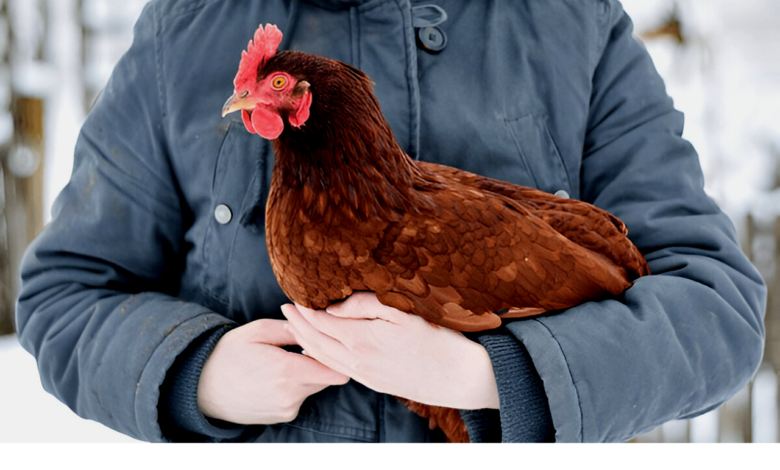
Rhode Island Pet Health Alerts You Shouldn’t Ignore
Rhode Island pet health alerts every owner must know. Learn about Lyme disease toxic algae & seasonal risks to protect your pets today.
Rhode Island pet health alerts are essential for every pet owner to understand, as they highlight critical risks that could endanger your furry companions. From seasonal threats like Lyme disease and toxic algae blooms to year-round concerns such as heartworm and household toxins, staying informed can help you take swift action to protect your pets. Whether you live near the coast, in wooded areas, or in urban neighborhoods, being aware of these dangers ensures your pet stays healthy and safe.
In Rhode Island’s unique environment, pets face various hazards that require vigilance and preventive care. This guide will explore the most urgent Rhode Island pet health alerts, including symptoms to watch for, effective prevention strategies, and when to seek veterinary help. By recognizing these risks early, you can avoid emergencies and provide the best care for your beloved animals. Let’s dive into the key health threats every Rhode Island pet owner should know.
Rhode Island Pet Health Alerts You Shouldn’t Ignore
Lyme Disease from Ticks a Year-Round Threat in Rhode Island
Rhode Island’s wooded and coastal areas create a perfect habitat for black-legged ticks, which transmit Lyme disease to pets. While these ticks are most active in warmer months, they remain a threat year-round, especially during mild winters. Dogs infected with Lyme disease may show symptoms like joint pain, fever, loss of appetite, and lethargy. In severe cases, it can lead to kidney damage. Prevention includes Monthly tick preventatives (topical treatments, chewable, or collars). Daily tick checks after outdoor activities, paying close attention to ears, paws, and underbelly. Prompt tick removal using tweezers to reduce infection risk. Vaccination (available for dogs, though not 100% effective).
Leptospirosis A Dangerous Bacterial Infection from Contaminated Water
Leptospirosis thrives in Rhode Island’s humid climate and is commonly found in stagnant water, muddy areas, and even urban puddles. This bacterial infection spreads through urine from infected wildlife (like raccoons and rodents) and can cause severe liver and kidney damage in pets. Symptoms include fever, vomiting, dehydration, and jaundice (yellowing of gums/eyes). Prevention strategies include Vaccination (often included in core vaccines for dogs). Avoiding contaminated water sources (stagnant ponds, floodwater, and high-traffic animal areas). Proper sanitation (washing paws after walks and disinfecting outdoor pet areas). Early veterinary care if exposure is suspected, as antibiotics can help if caught early.
Seasonal and Environmental Hazards
Winter Hazards Antifreeze Poisoning and Cold Weather Risks
Rhode Island winters bring the hidden danger of ethylene glycol antifreeze, a sweet-smelling liquid that attracts pets but proves fatal in minuscule amounts just one teaspoon can kill a cat, while four teaspoons endanger dogs. This toxin causes rapid crystal formation in kidneys, leading to irreversible organ damage within hours. Prevention requires multiple safeguards: switching to propylene glycol-based antifreeze (marketed as pet-safe), immediately cleaning any vehicle leaks with cat litter then vinegar and storing containers in locked cabinets. Critically, pet owners must recognize early symptoms drunken stumbling, nausea, and excessive urination appearing 30 minutes to 12 hours post-ingestion as this narrow window demands immediate veterinary intervention with antidotes.
Summer Dangers Heatstroke and Toxic Chemicals
Rhode Island’s humid summers create a particularly dangerous environment for pets vulnerable to heatstroke, especially flat-faced breeds like Bulldogs and Pugs, senior animals, and thick-coated dogs. These pets struggle with temperature regulation and can quickly develop life-threatening symptoms including Toxic Chemicals, thick drooling, loss of coordination, or even seizures when overheated. Prevention requires constant vigilance: never leave pets in vehicles where temperatures can become lethal within minutes, always provide ample shade and cool drinking water, and restrict outdoor activity to early mornings or evenings when temperatures drop. Before walks, test pavement with your hand if it’s uncomfortable for you, it will burn sensitive paw pads. For pets spending time outdoors.
Household and Human Food Dangers
Many common foods are toxic to pets, including chocolate, xylitol (found in sugar-free gum), grapes, and onions. Even small amounts can cause severe reactions. Keep human food securely stored and educate family members on these dangers. House plants like lilies (toxic to cats) and sago palms can also be deadly if chewed or ingested. Before bringing plants into your home, verify their safety for pets.
Emerging and Less-Known Risks
Cannabis Toxicity a Growing Danger for Curious Pets
As marijuana legalization expands in Rhode Island, veterinarians report a sharp rise in cannabis toxicity cases, particularly from pets ingesting THC-infused edibles (like gummies or baked goods) or loose plant material. Dogs are especially vulnerable due to their keen sense of smell and indiscriminate eating habits. Symptoms which can appear within 30–60 minutes include glazed eyes, stumbling, urinary incontinence, abnormal heart rate, and in severe cases, seizures or respiratory depression. Unlike humans, pets lack cannabinoid receptors that regulate THC’s effects, making even small doses dangerous.
Foxtails & Burrs Nature’s Hidden Hazards
Rhode Island’s meadows and trails harbor foxtail grasses and burrs, which can become embedded in a pet’s skin, ears, or nostrils during outdoor adventures. These plant awns have sharp, barbed structures that migrate deeper into tissue, causing painful abscesses, infections, or even organ perforation if inhaled or swallowed. Common trouble spots include between toes, ear canals, and under eyelids.
The Importance of Regular Vet Checkups
Proactive veterinary care is your pet’s first line of defense against Rhode Island’s unique health threats, with annual wellness exams serving as critical opportunities to catch emerging issues before they become serious. These visits should include core vaccinations (like rabies and distemper), region-specific immunizations (such as Lyme disease and leptospirosis vaccines), and parasite screenings for ticks, fleas, and heartworm all tailored to Rhode Island’s coastal climate and seasonal risks. Your vet can also provide personalized prevention plans, whether that means adjusting flea/tick medication for peak summer infestations or discussing cannabis toxicity risks in households with medical marijuana.
Read More: Daily Health Routines for Pets in Kansas Vet-Approved Advice
Conclusion
Rhode Island pet health alerts serve as vital reminders that our pets face real and preventable dangers in their daily environments. From tick-borne illnesses to toxic hazards, being proactive about these risks can mean the difference between a healthy pet and a medical emergency. By staying informed through local veterinary advisories and taking preventive measures like regular parasite control and pet-proofing your home, you create a safer world for your furry family members.
Ultimately, your awareness and quick action are the best defenses against these threats. Whether it’s avoiding contaminated water sources, keeping harmful foods out of reach, or scheduling routine vet checkups, every precaution matters. Paying attention to Rhode Island pet health alerts ensures your pets enjoy a happy, healthy life by your side free from preventable illnesses and dangers. Stay vigilant, stay informed, and give your pets the protection they deserve.
FAQs
What are the most common tick-borne diseases in Rhode Island?
Lyme disease, anaplasmosis, and ehrlichiosis are prevalent, transmitted by black-legged ticks.
How can I protect my pet from leptospirosis?
Vaccination and avoiding contaminated water sources are the best preventive measures.
Are heartworm preventatives necessary year-round in Rhode Island?
Yes, since mosquitoes can survive indoors even in winter, year-round prevention is recommended.
What should I do if my pet ingests a toxic substance?
Contact your vet or an emergency pet poison hotline immediately for guidance.
Can indoor pets get heartworm or tick diseases?
Yes, mosquitoes and ticks can enter homes, so prevention is essential even for indoor pets.







